
‘Never has it been more valuable’
Sabine Witt | 24 March 2021
In Germany, the Covid-19 pandemic first upended everyday life one year ago. The first lockdown in the Federal Republic started in March 2020, and today politicians are still searching for ways out of the second one. The restrictions imposed to fight the pandemic have left their mark on society. In this series, five head curators at the Deutsches Historisches Museum reveal how the coronavirus pandemic has been documented in the collection. Dr Sabine Witt, Curator of Everyday Culture, presents a few commonplace objects that attest to shows of solidarity and social actions in the pandemic.
Our perceptions and values have changed fundamentally since the coronavirus pandemic hit Germany in the early weeks of 2020, leaving public life largely paralyzed since March, deeply upsetting economic and social structures, and impacting everyday routines on the most basic level. Staple foods and everyday hygiene items became hot commodities that were purchased compulsively and often hoarded.
The scenes in supermarkets and drugstores are still fresh in our minds, and the disturbing images of empty shelves (see our blog post on coronavirus photographs in the DHM collection) serve as a good reminder of what happened. On a much more modest scale, the DHM’s Everyday Culture Collection also acquired what is probably the most common everyday household item: a roll of toilet paper. Not only did the DHM accession an economy pack of eight rolls, it also decided to inventory a single roll of toilet paper – lovingly decorated, dated, and inscribed – an object that testifies to the solidarity and neighbourly kindness that could be observed among citizens everywhere.
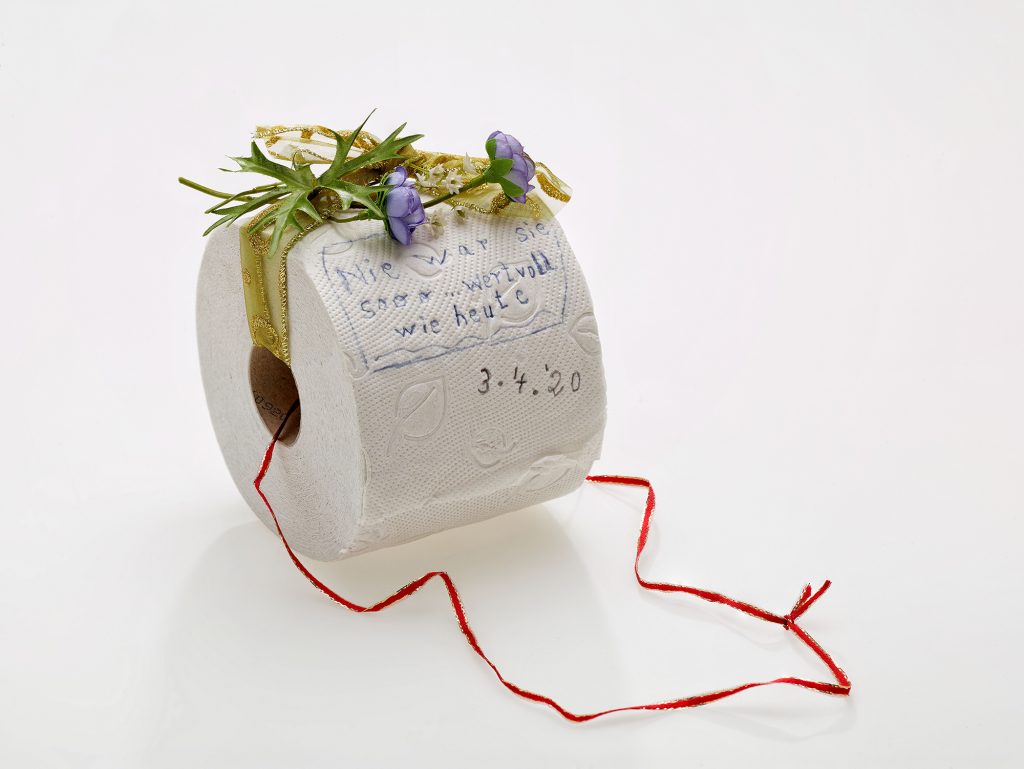
Roll of toilet paper, decorated and inscribed, 3 April 2020. DHM, AK 2020/5, DHM © Sebastian Ahlers
The cornerstones of coronavirus prevention (social distancing, frequent handwashing, wearing a mask) are also reflected in the objects that we added to the collection in 2020: some universal, like this hand-sanitizing wipe, and others specific to Berlin, such as this red-and-white barricade tape, which was used to cordon off a tennis court on Tempelhofer Feld in April 2020 (for an image, see our blog post on the coronavirus photographs in the DHM collection).
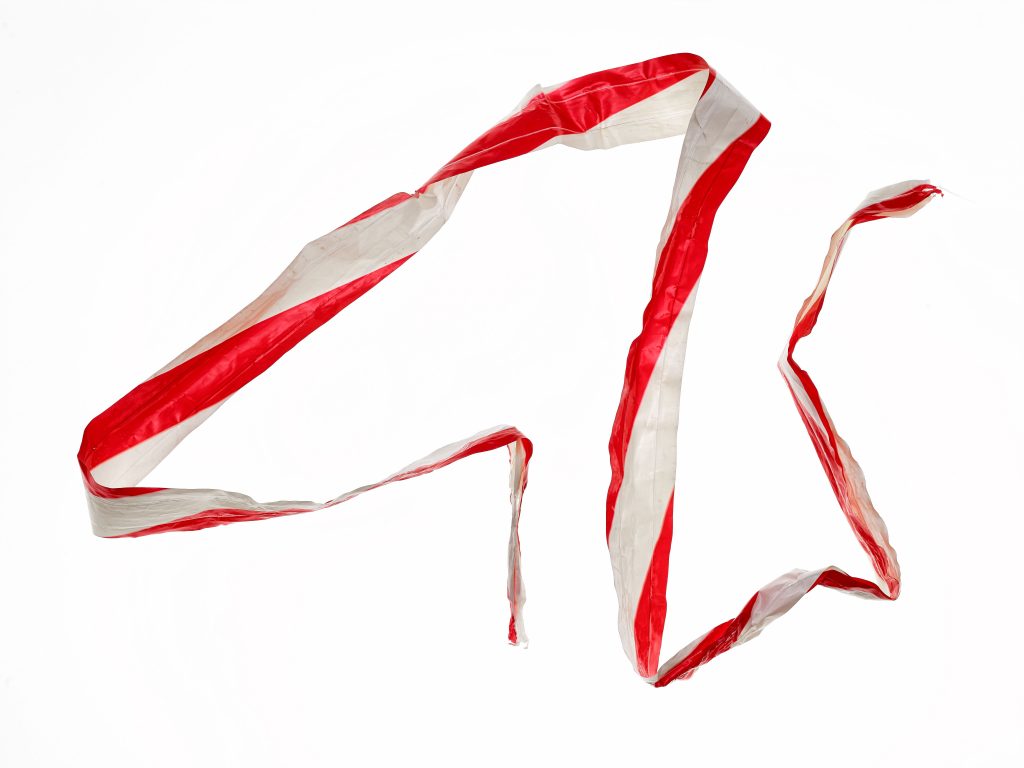
Barricade tape from the tennis court at Tempelhofer Field, closed due to the coronavirus, 2020. DHM, AK 2020/69 © Sebastian Ahlers
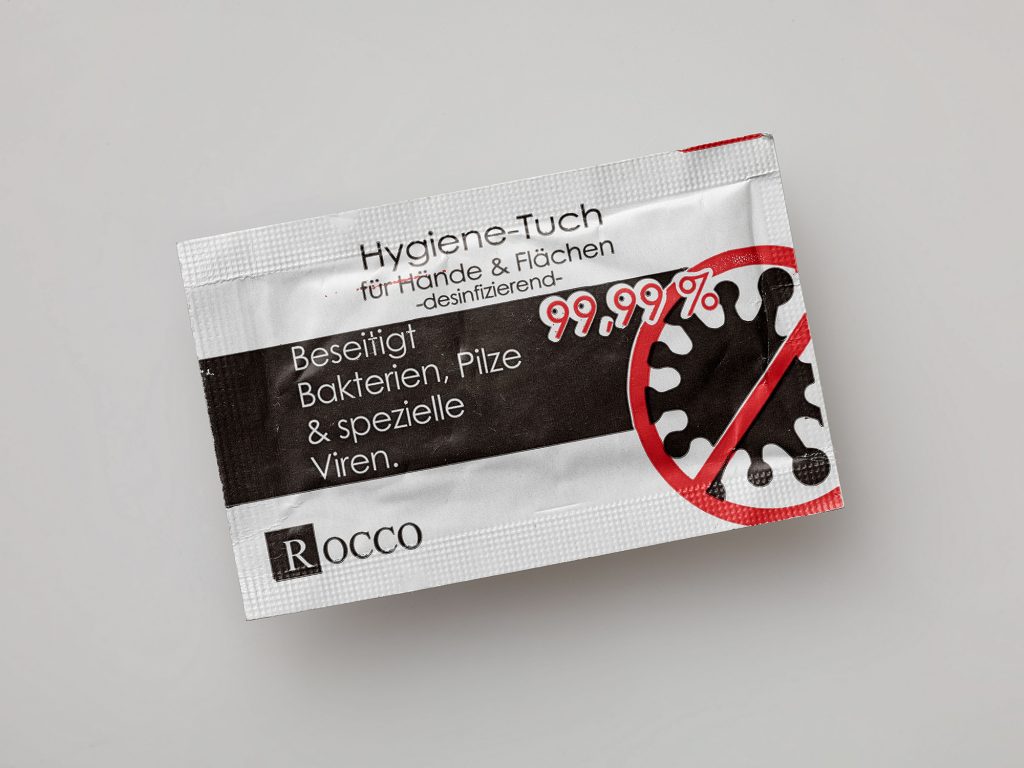
Hand-sanitizing wipe, 2020. AK 2020/68, DHM © Sebastian Ahlers
Companies recognized the sudden demand for masks and other personal protective equipment (PPE), and accordingly expanded their product ranges and adjusted production at short notice.
The Brandstätter Group, a key player in the global toy market, began producing plastic masks in April 2020. Each one came with a ten-pack of standard paper tissues, which served as a filter. Around 20 percent of profits went to the Corona Emergency Relief Fund of the German Red Cross.
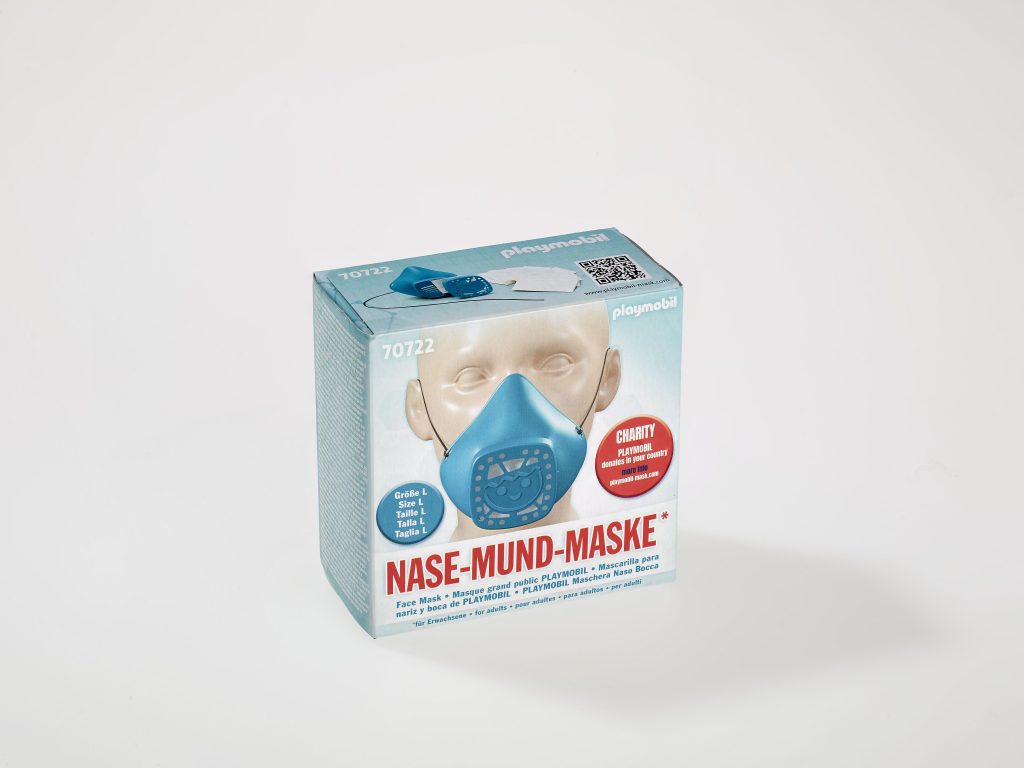
Playmobil ‘nose and mouth mask’, size L, AK 2020/35 / DHM © Sebastian Ahlers
In response to parents’ demands for protective wear for their children, they made their internationally marketed mask available in sizes S and M, as well.
Other things, either because of their contents or their names, were also rigorously subjected to viral testing: on a sunny spring day in 2020, four cans of Corona Extra were purchased, imbibed, and donated to the DHM collection. A traditional drink and a staple in bar fridges around the globe, the Mexican beer experienced a temporary suspension of production in 2020, but can still be enjoyed today in 2021 – outdoors, hopefully with friends again soon, and, as always, in moderation.
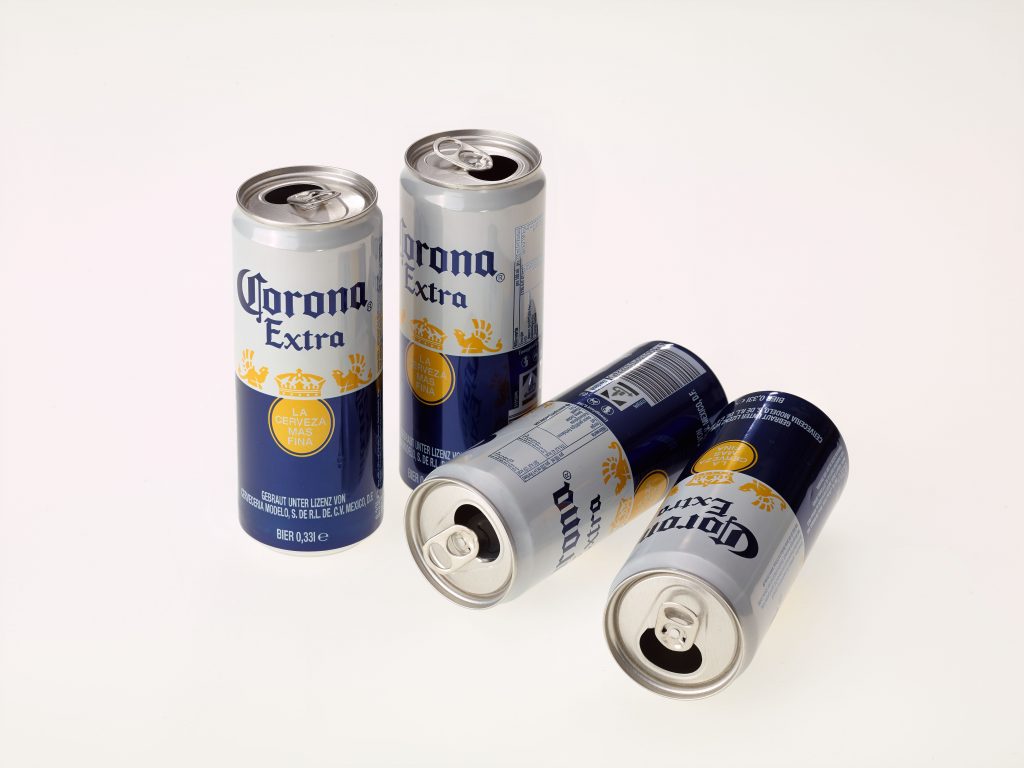
Cans of Corona Extra beer, obviously empty, 2020. DHM, AK 2020/28-31, DHM © Sebastian Ahlers